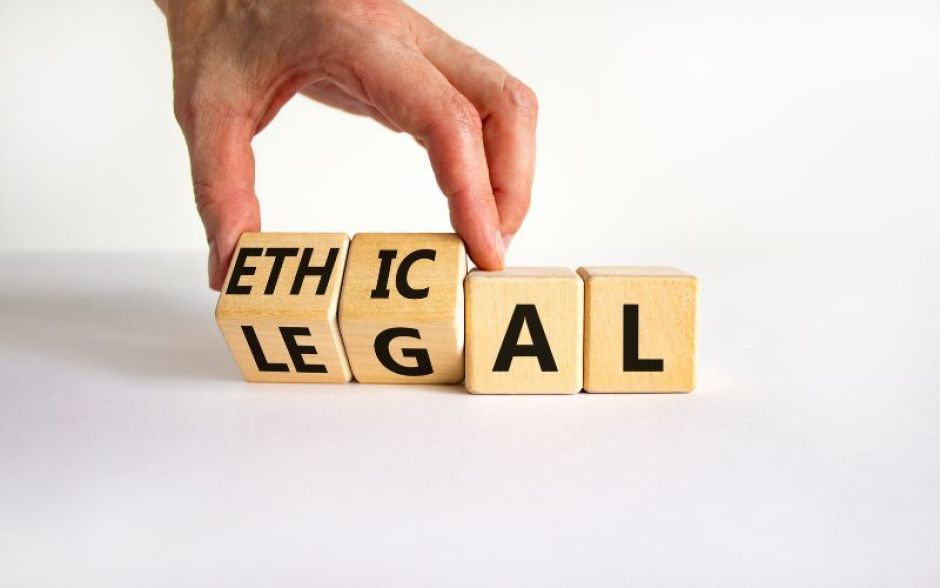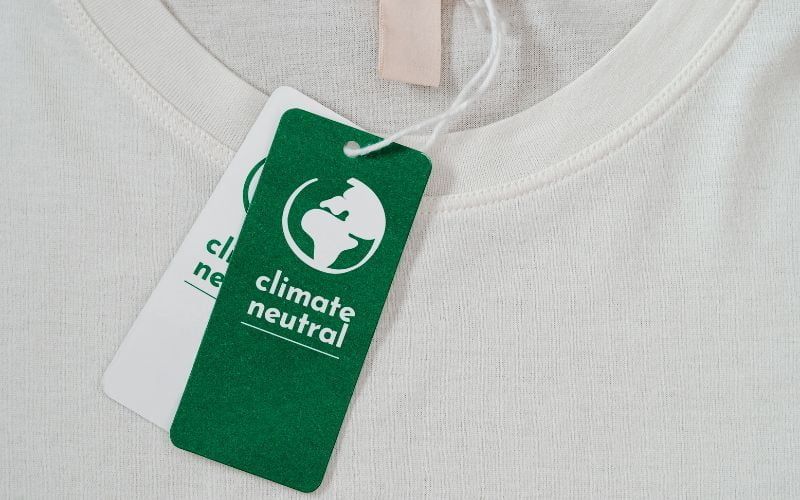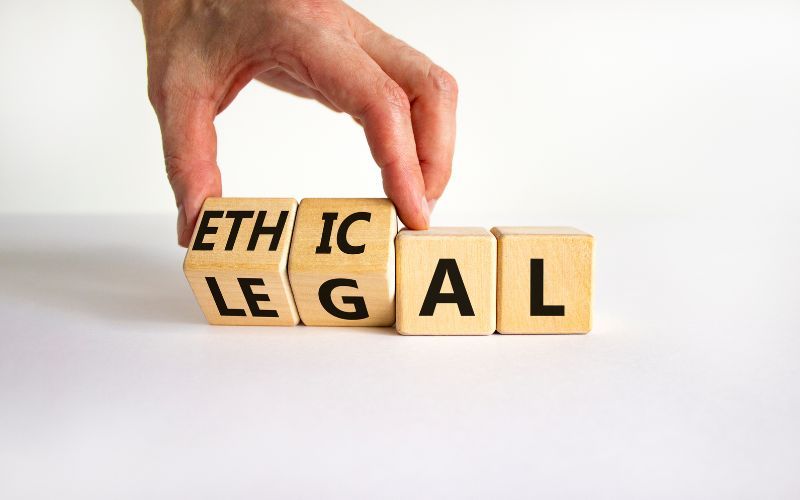
Ethical Brands : Pioneers of Super Sustainable Living 2023
In today’s world, where environmental concerns and social responsibility take center stage, consumers are increasingly turning their attention to ethical brands. These brands go beyond profit margins and prioritize sustainability, fair labor practices, and community well-being. As a sub-category of eco-friendly gear, ethical brands are making significant strides in reshaping the way we think about consumerism. This comprehensive guide delves into the world of ethical brands, exploring their significance, principles, and impact on the environment and society.

Table of Contents
Understanding Ethical Brands
Defining Ethical Brands:
At the heart of the ethical brands movement lies a commitment to values that transcend profit margins. Ethical brands, also known as sustainable brands, are pioneers of conscious consumerism. They prioritize ethical and sustainable practices throughout their entire supply chain, striving to make a positive impact on society and the planet.
Ethical Brands go beyond the conventional definition of profit-driven entities; they embody a holistic approach to business that considers the well-being of people, the environment, and the communities they operate in. Their mission is to align economic success with social responsibility and ecological sustainability.

Key Principles:
Sustainability: Ethical brands are torchbearers of sustainability. They are deeply committed to reducing their environmental footprint. From sourcing raw materials to production processes and packaging, sustainability is the cornerstone of their operations.
Fair Labor Practices: These brands ensure that every individual involved in their supply chain is treated with dignity and fairness. Fair wages, safe working conditions, and respect for workers’ rights are non-negotiable principles.
Community Engagement: Ethical brands are not just businesses; they are active members of the communities they operate in. They actively engage in community development initiatives, supporting projects that improve living conditions, education, and healthcare. They believe in giving back to the communities that support them.
Transparency: Transparency is a fundamental value for ethical brands. They maintain open and honest communication with consumers, allowing them to trace the journey of their products from sourcing to production. This transparency builds trust and empowers consumers to make informed choices.
Human Rights and Social Responsibility: These brands uphold human rights and social responsibility as core values. They are vigilant about the impact of their operations on local and global communities, striving to make a positive difference.
Innovation and Progress: Ethical brands are constantly innovating to find new ways to reduce their environmental impact and promote social well-being. They invest in research and development to discover eco-friendly materials, energy-efficient technologies, and sustainable practices.
Understanding ethical brands goes beyond recognizing them as eco-conscious entities. It’s about acknowledging their commitment to a better world—one where businesses thrive by aligning their interests with those of humanity and the environment. Ethical brands offer a roadmap to responsible consumerism, showing that we can make choices that benefit both the present and the future.
Ethical Fashion: Dressing with Purpose
In a world inundated with fast fashion and disposable clothing trends, ethical fashion emerges as a beacon of hope and purpose. It represents a paradigm shift in how we perceive and interact with our clothing. Ethical fashion goes beyond style; it encompasses values, sustainability, and a deep commitment to making responsible choices.
Eco-Friendly Materials:
One of the cornerstones of ethical fashion is the use of eco-friendly materials. These materials are not only kinder to the environment but also contribute to the overall quality and longevity of clothing. Ethical fashion brands make conscious choices when sourcing materials, opting for sustainable options such as organic cotton, bamboo, hemp, and recycled fabrics.

Organic Cotton: Ethical fashion embraces organic cotton, which is grown without the use of synthetic pesticides and genetically modified organisms (GMOs). This not only protects the health of farmers and ecosystems but also yields a softer and more breathable fabric.
Bamboo: Bamboo is a remarkable material used in ethical fashion. It grows rapidly, requires minimal water, and doesn’t rely on chemical inputs. Bamboo clothing is known for its comfort and moisture-wicking properties.
Recycled Fabrics: Ethical brands often incorporate recycled materials into their clothing lines. These materials can include post-consumer waste like plastic bottles or pre-consumer waste from textile factories. By repurposing existing materials, ethical fashion helps reduce resource consumption and waste.
Slow Fashion Movement:
Ethical fashion aligns with the principles of the slow fashion movement. This movement encourages consumers to shift their mindset from disposable, trend-driven clothing to investing in timeless, durable pieces. It’s a movement that celebrates quality over quantity and encourages responsible consumption.
Quality Over Quantity: Ethical fashion brands prioritize the creation of high-quality garments that withstand the test of time. These pieces are designed to be cherished and worn for years, reducing the need for constant replacements.
Reduced Waste: Slow fashion leads to reduced waste. When consumers buy fewer but higher-quality items, they contribute to a decrease in textile waste, a pressing issue in the fashion industry.
Ethical Sourcing: Slow fashion takes into account the entire supply chain, ensuring that workers are paid fair wages and work in safe conditions. This extends the lifespan of a garment from its creation to its disposal.

Fair Trade Clothing:
Fair trade practices are integral to ethical fashion. Fair trade clothing ensures that artisans and workers receive fair compensation for their craftsmanship. This commitment to fair wages and safe working conditions empowers marginalized communities, promotes economic equality, and upholds human dignity.
Ethical fashion is not just about what we wear but also about the values we uphold. It encourages us to make mindful choices that positively impact the environment, support fair labor practices, and foster a sense of responsibility towards the world we live in. Dressing with purpose means not only looking good but also feeling good about the choices we make as consumers.
Ethical Consumer Electronics: Tech with a Conscience
In an era defined by technological advancements and innovation, ethical consumer electronics stand out as beacons of responsibility in an industry often associated with rapid obsolescence and environmental concerns. These brands are rewriting the narrative by embracing ethical and sustainable practices that prioritize the well-being of the planet and society.
Sustainable Electronics:
Ethical consumer electronics brands are committed to sustainability throughout their product lifecycles. This begins with the careful selection of materials and extends to energy-efficient manufacturing processes and responsible end-of-life management.
Eco-Friendly Materials: Ethical brands choose materials that are environmentally responsible. This includes minimizing the use of hazardous substances, selecting recyclable components, and ensuring that the production of electronics does not contribute to deforestation or habitat destruction.
Energy Efficiency: Ethical electronics brands prioritize energy efficiency at every stage, from design to manufacturing. They produce devices that consume less power and implement measures to reduce energy waste during production.

Longevity and Repairability: These brands design products with longevity in mind, discouraging a throwaway culture. They create devices that are repairable, enabling users to extend the lifespan of their electronics through maintenance and upgrades.
Conflict-Free Minerals:
Ethical electronics brands take a stand against the unethical sourcing of minerals, particularly those linked to conflicts and human rights abuses. They actively work to ensure that the minerals used in their devices are conflict-free.
Responsible Mineral Sourcing: Ethical brands invest in tracing the origin of minerals used in their electronics to confirm that they are sourced responsibly. This commitment helps mitigate the harm caused by the extraction and trade of conflict minerals.
Human Rights Advocacy: These brands engage in advocacy efforts to raise awareness about the issue of conflict minerals and support measures that promote ethical mineral sourcing.
Repairability and Modular Design:
One hallmark of ethical consumer electronics is the emphasis on repairability and modular design. This approach challenges the prevailing trend of disposable electronics.
User-Friendly Repair: Ethical brands facilitate user-friendly repairs by providing access to repair manuals, spare parts, and tools. This empowers users to fix and upgrade their devices, reducing electronic waste.
Modular Design: Devices are designed in a modular fashion, meaning that components can be easily replaced or upgraded. This not only extends the lifespan of the product but also reduces the overall environmental impact.
Ethical consumer electronics exemplify a commitment to responsible innovation and responsible consumption. They show that technology and sustainability can coexist, offering consumers choices that align with their values. By supporting ethical tech brands, individuals become advocates for a tech industry that is not only innovative but also compassionate toward the planet and the people who inhabit it.
The Food Industry: Ethical Choices on Your Plate
The choices we make at the dining table have far-reaching consequences for our health, the environment, and the well-being of communities around the world. Ethical choices in the food industry go beyond mere sustenance; they reflect our commitment to a better world—a world where food is produced sustainably, workers are treated fairly, and communities thrive.
Organic Food:
At the heart of ethical food choices lies the embrace of organic food. Organic farming represents a significant departure from conventional agriculture, prioritizing soil health, biodiversity, and sustainable practices.
Pesticide-Free Cultivation: Organic farming eschews the use of synthetic pesticides, favoring natural and eco-friendly alternatives. This not only protects the health of farmers but also prevents soil and water contamination.
Non-GMO Practices: Ethical food brands often commit to non-GMO (Genetically Modified Organism) practices. This ensures that the food we consume is in its natural state, free from genetic alterations.
Sustainable Farming: Organic farming practices prioritize sustainability, emphasizing crop rotation, reduced chemical inputs, and responsible water management. These practices promote soil health and reduce the environmental impact of agriculture.
Fair Trade Coffee and Chocolate:
Two commodities that often feature prominently in ethical food choices are coffee and chocolate. Ethical brands in the food industry participate in fair trade practices to ensure that the production of these beloved items does not exploit workers or harm communities.
Fair Wages: Fair trade practices guarantee that coffee and cocoa farmers receive fair wages for their labor. This uplifts farming communities, reduces poverty, and empowers workers.
Safe Working Conditions: Ethical brands in the coffee and chocolate industry ensure that workers are employed in safe and humane conditions. This includes protection from hazardous chemicals and fair treatment.
Community Development: Fair trade initiatives contribute to community development by investing in education, healthcare, and infrastructure in coffee and cocoa-producing regions. This creates a positive cycle of progress.
Reducing Food Waste:
Ethical food brands are also at the forefront of the battle against food waste. They actively work to reduce waste through various strategies, demonstrating their commitment to responsible resource management.
Imperfect Produce: Many ethical brands embrace “ugly” or imperfect produce that might be rejected by traditional markets. By repurposing these fruits and vegetables, they reduce food waste.
Sustainable Packaging: Ethical food brands prioritize sustainable packaging, choosing options that are recyclable, biodegradable, or reusable. This reduces the environmental impact of packaging waste.
Food Donations: Ethical brands often engage in food donation programs, directing excess food to charities and food banks to help alleviate hunger and food insecurity.
Ethical choices in the food industry represent a profound commitment to ethical consumption. They advocate for a world where food is not only delicious but also produced with respect for the environment, fair treatment of workers, and the well-being of communities. These choices empower consumers to be mindful eaters and stewards of a more sustainable and equitable food system.
Ethical Beauty and Personal Care: Nourishing Your Skin and Conscience
In the realm of beauty and personal care, ethical choices have emerged as a powerful force for positive change. Ethical beauty brands understand that what we apply to our skin matters not only for our personal well-being but also for the planet and the communities that produce these products. They are committed to crafting cosmetics and personal care items that not only enhance our appearance but also reflect our values of sustainability, cruelty-free practices, and responsible sourcing.
Natural Ingredients:
At the heart of ethical beauty and personal care products are natural ingredients that prioritize the health of both consumers and the environment. These ingredients are thoughtfully sourced, cruelty-free, and often sustainably harvested.
Sustainable Sourcing: Ethical beauty brands take great care in sourcing ingredients sustainably. This includes selecting botanicals and other components that do not deplete ecosystems or harm wildlife.
Cruelty-Free Practices: A core principle of ethical beauty is a strict commitment to not testing products on animals. This cruelty-free stance ensures that no animals suffer for the sake of our beauty routines.
Eco-Friendly Packaging: Many ethical beauty brands opt for eco-friendly packaging, using materials that are recyclable, biodegradable, or reusable. This not only reduces plastic waste but also minimizes the carbon footprint associated with product packaging.
No Animal Testing:
The concept of “no animal testing” extends beyond cosmetics to encompass all personal care products. Ethical brands take a principled stance against animal testing, sparing countless animals from suffering.
Alternative Testing Methods: Ethical beauty brands actively support and invest in alternative testing methods that do not involve animals. These methods are often more accurate and humane.
Cruelty-Free Certification: Many ethical beauty products proudly display cruelty-free certifications to reassure consumers of their commitment to animal welfare.
Supporting Communities:
Ethical beauty brands often go beyond sourcing ingredients and engage in meaningful community support initiatives. They recognize that the communities that produce these ingredients deserve equitable treatment.
Local Cooperatives: Some brands source ingredients from local cooperatives, empowering communities by providing fair compensation and economic stability.
Preserving Traditional Knowledge: Ethical brands value traditional knowledge related to botanicals and indigenous ingredients, ensuring that these practices are preserved and respected.
Education and Empowerment: Initiatives such as education and skill development programs are commonly supported by ethical beauty brands, helping to uplift communities.
Ethical beauty and personal care represent more than just products; they signify a commitment to well-being that extends to individuals, the environment, and society as a whole. Choosing ethical beauty and personal care products allows consumers to nourish not only their skin but also their conscience. It’s a conscious choice that embraces values of sustainability, ethical sourcing, and cruelty-free practices, leading to a world where beauty truly radiates from within.
The Impact of Ethical Brands
Environmental Conservation:
Through sustainable practices, ethical brands contribute to environmental conservation by reducing pollution, deforestation, and carbon emissions.
Social Justice:
These brands promote social justice by providing fair employment opportunities, empowering marginalized communities, and supporting human rights.
Consumer Empowerment:
By choosing ethical brands, consumers become agents of change, influencing industries and promoting ethical practices.
Conclusion
Ethical brands exemplify a paradigm shift in consumerism—one that prioritizes sustainability, social responsibility, and conscious consumption. From ethical fashion to sustainable electronics, food, beauty, and personal care products, these brands offer choices that align with values of environmental preservation, fair labor practices, and community well-being. As consumers, our choices have the power to shape industries, protect the planet, and promote a more equitable society. Embracing ethical brands is not just a trend; it’s a transformative journey towards a more sustainable and ethical future for all. Join the movement, make informed choices, and be part of the positive change that ethical brands represent.



